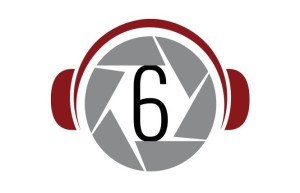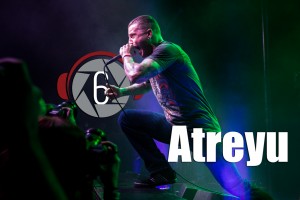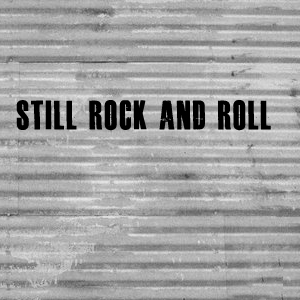A Crime So Monstrous
7 min read
[Ed. Note: Today marks the beginning of a series of articles from Circle Six Magazine this week designed to raise awareness of the evil that is human trafficking. As an introduction, we’ve asked Adam Young, a minister from Ohio and co-founder of human trafficking awareness group The Power of 1, to give you a view of the world of human trafficking and modern day slavery. Our hope is that once aware, you can no longer stay silent. Join C6M and Adam today to wipe this scourge from the planet.]
 Imagine with me three present-day nightmares that actually take place around the world (and perhaps even right next door):
Imagine with me three present-day nightmares that actually take place around the world (and perhaps even right next door):
Nightmare #1: You are a 21 year old woman named Yuliana. You are originally from the Eastern European country of Moldava, but you now reside in a large city in the adjoining country of Ukraine. You are a prostitute. When you were 19, a distant relative persuaded your parents to let you go with him to a neighboring Moldavan town because there was work there. He did not take you there. He instead took you across the border to Ukraine and sold you to another man who along with two other men beat and raped you repeatedly for three days. He then sold you to a brothel, which is where you now spend your life. You do not know the language and you do not know anyone besides the brothel owner and the other prostitutes – who are from other countries and provinces, so that you cannot communicate with each other.
Nightmare #2: You are a ten year old girl named Anjali. You live in a small village in India, and because of a land debt that your family owes to the land owner, you are forced to roll cigarettes 17 hours a day for him. You are allowed no breaks, you are given one meager meal a day, and you do not get any time to play or spend time with your family. You have a quota of rolled cigarettes for each day, and when you do not meet your quota due to aching fingers, you are beaten and verbally threatened. You are losing your eyesight because of staring in the dimly lit shed where the landowner keeps you. Your family’s land debt grows every year, even though your father has been working in the quarry for the landowner for the last fifteen years.
Nightmare #3: You are an eleven year old boy named Luzige. You grew up in southern Sudan, but when you were nine, soldiers from the Lord’s Resistance Army came and abducted you and your brother Munyiga and forced you to walk day and night to their camp in the Democratic Republic of the Congo. Once you arrived at the camp, the soldiers brutalized you and forced you to become a soldier. Your brother was killed last year fighting for the LRA.
Even though all three of these scenarios take place on three different continents, and describe three different situations, these stories have one thing in common: human trafficking. The disaster of human trafficking affects millions of people. For most of us, slavery is associated with the past, but human trafficking, including bonded labor, sex trafficking, and child army recruitment, is alive and well in the world.
Stories and news about human trafficking were few and far between for most of its sordid history, but in the last few years, there has been an effort to make people more aware of this present-day tragedy. The Hollywood movie Taken, which starred Liam Neeson and was about human trafficking, came out in 2008 and made 145 million dollars at the box office. Craigslist has been in the news recently as attorneys general from seventeen states have pressured the company to eliminate the adult services area of their site, as traffickers have used the ads to peddle prostitution (as of writing this article, the news came out that Craigslist has at least temporarily removed the adult services area). Several news agencies have reported on one of the consequences of the devastating earthquake that hit Haiti and left thousands of children as orphans – Haiti has now become a trafficker’s haven, as they have taken advantage of the situation by abducting children and selling them to the highest bidder. However, many people still don’t know how big of a problem it is in the world today.
Human Trafficking is a crime against humanity. It involves an act of recruiting, transporting, transferring, harboring or receiving a person through a use of force, coercion or other means, for the purpose of exploiting them. It is a form of present day slavery and it affects more than 27 million people around the world, according to Kevin Bales, author of the books Ending Slavery and Disposable People. It’s hard to see a staggering number like that and fathom how many people that really is, so if you take the population of the entire state of Texas, and then add the population of the entire state of Nevada, you would have about 27 million people. It is estimated that human trafficking generates 32 billion dollars annually, which makes it the second largest criminal venture in the world – behind the illegal drug trade – and the fastest growing global problem. Of the 800,000 people trafficked across international borders every year, 80 percent are female and 70 percent are trafficked for sexual exploitation.
And it’s not just a problem in far-away places like India, Cambodia, Africa, and Eastern Europe. All across the United States, traffickers take victims from city to city, major thoroughfare to major thoroughfare, truck stop to truck stop. Over 100,000 children are forcefully engaged in prostitution and pornography every year. 1 out of 4 teen runaways will have contact with a trafficker within the first 48 hours of their leaving home.
Human trafficking is a modern-day tragedy. Sometimes when we are confronted with staggering statistics – after we get over the shock and realization that something like this exists – we are often left with a paralyzing fear of helplessness and lack of motivation to do anything about it; after all, what can one person do to stem the tide of such harrowing crime?
The solution to trafficking lies in a concerted, determined effort to bring relief to victims and accountability to perpetrators. And there is an ever-growing group of “abolitionists” (as some anti-human trafficking crusaders call themselves) who are resolved to bring change and shine light in the dark world of human trafficking.
More and more musical artists (Switchfoot, Paramore, Cold War Kids) and actors (Ashley Judd, Juliette Binoche, Demi Moore/Ashton Kutcher) are using their star power to tell the world about the plight of human trafficking victims.
The US State Department, led by Secretary of State Hillary Clinton and Luis CdeBaca (the ambassador of the Office To Monitor and Combat Trafficking in Persons), have been increasing diplomatic pressure on countries where human trafficking is rampant. The State Department puts out an annual Trafficking In Persons Report, where countries are grouped into “tiers” based on their willingness to deal with human trafficking in their country. A level 1 tier country is doing something about it; a level 3 tier country is not and faces stiff penalties through sanctions and the withholding of non-humanitarian, non-trade-related assistance. (The United States, Germany and Nigeria are examples of Tier 1 countries; Burma, Iran and Zimbabwe are examples of Tier 3 countries.)
States within the US are beginning to realize that although the U.S. does have an anti-trafficking law, tougher laws are needed on the state level in order to deal directly with the criminals as well as to lower the demand for human trafficking within the US by creating stiffer penalties for those who use these services both locally and abroad.
There are many great anti-human trafficking organizations that are on the front line of the fight, and it is exciting to see some of them begin to partner together in order to make a stand against what is happening.
So what can you do? Here are some ways to get started:
- Educate yourself. There are some great movies and documentaries that have come out in the past few years that will not only supply you with information about human trafficking, they will also touch your heart as you connect with the victims. There are also many books that will help you understand what is happening in the world today – I highly recommend Disposable People and Ending Slavery by Kevin Bales, and A Crime So Monstrous by Benjamin Skinner. If you want to keep up with what’s happening in the news, bookmark http://humantrafficking.change.org.
- Find others in your area who are passionate for this cause. Facebook, Twitter, Meetup.org are all great ways to find a group near you of like-minded people who are helping to raise awareness and funds to combat human trafficking. If you can’t find a group, start one yourself!
- Join the cause by supporting an anti-human trafficking organization. As mentioned above, there are many great organizations that are attacking human trafficking in many different ways: whether it is working with public justice systems globally to protect victims and prevent crime, (International Justice Mission) or helping to rescue and restore girls who have been trafficked (Love146), or advocating for stronger state and Federal anti-trafficking legislation (Polaris Project), you will find an organization with a mission that will connect with you.
- Buy fair trade products. I know that it seems kind of trendy these days to label a product as fair trade, but it works. Fair trade companies must agree to ban child and slave labor, and guarantee a safe workplace. By buying products not made by slaves, you are helping to eliminate the profits of those who exploit people for their own use and who treat people as commodities, not as humans.
There is hope for victims like Luzige, Anjali and Yuliana. As Benjamin Skinner writes in his book A Crime So Monstrous: “Slavery has been with us for more than 5,000 years, yet with concentrated and coordinated effort, we can eliminate it in a generation.”






Thanks Adam, for giving readers just a glimpse into this evil practice.
Very enlightening article. Is there a list of the companies that are / are not fair trade? I seem to have hear lots of rumblings over the years that Walmart did/does employ child labor overseas.
Lee – thanks!
Shaun – I’m sure there’s something out there. I will research and get back with you!
Thanks for being part of the solution and giving us some info so we can too.